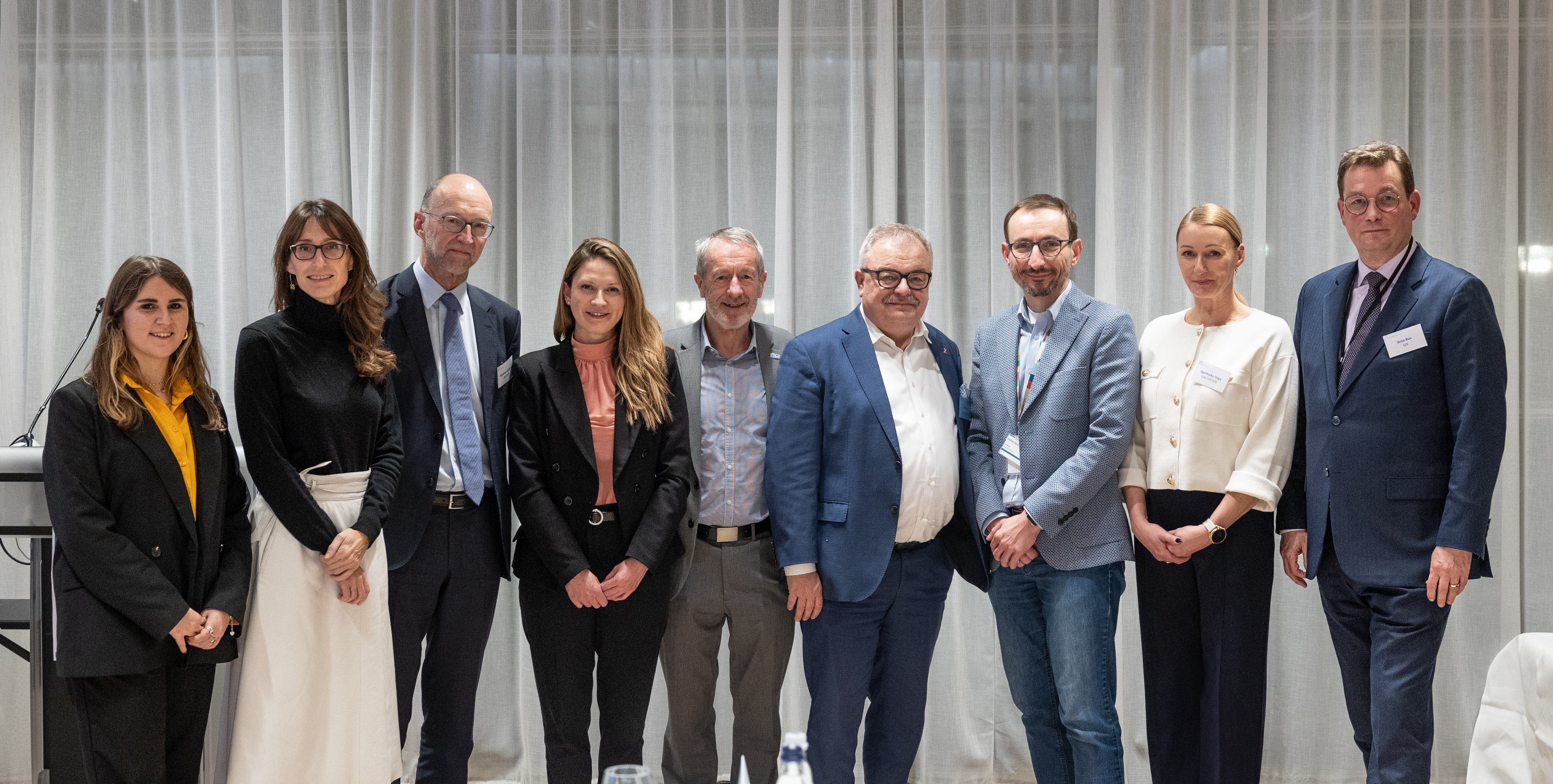Energy priorities of the Polish Presidency
Chaired by
Tsvetelina Penkova MEP, EEF President
Speakers:
Arkadiusz Pluciński, Deputy Head of the Permanent Representation of Poland to the EU
Agnieszka Ozga, Director Energy Transition Division, GAZ-SYSTEM
Arno Büx, GIE President
Matthew Baldwin, DG ENER
Tsvetelina Penkova, EEF President, introduced the event by underlining the critical role the Presidency will play amidst global challenges. She emphasized the need for a resilient energy infrastructure as a foundation for economic growth and competitiveness, calling for clear priorities such as a balanced energy mix, affordable energy prices, smart technology adoption, cross-border collaboration, and consistent EU policies.
Arno Büx, President of Gas Infrastructure Europe (GIE), highlighted Europe’s gas infrastructure as a unique and adaptable resource, vital for energy resilience. He described how this infrastructure supports the integration of hydrogen, biomethane, and CO₂ transport while providing flexibility for electricity systems. Mr. Büx underscored the importance of maintaining openness to diverse technological solutions to address evolving energy demands and scenarios.
Agnieszka Ozga from GAZ-SYSTEM showcased Poland’s achievements in energy security, particularly its independence in terms of gas supply through diversification and regional interconnections. She joined the previous speaker in outlining the future objectives, including hydrogen, biomethane and CO₂ projects. Ms. Ozga emphasized that regional cooperation has been crucial in bolstering energy security and that Poland remains committed to furthering these efforts during its Presidency.
Mariusz Kawnik, Energy Attaché of Poland’s EU Representation, spoke on behalf of the incoming Polish Presidency. Priority will be given to energy security, focusing on diversifying energy sources and competitiveness and phasing out fossil fuel imports by 2027. The Presidency that does not have legislative initiative, is eagerly waiting for the European Commission programme within the 100 days, especially for the Clean industrial deal. The Presidency will be steering debates on energy sector strategies and Member State contributions to ensure a resilient and competitive energy market.
Matthew Baldwin from DG ENER reiterated the importance of energy affordability, security, and the clean energy transition. He acknowledged Poland’s leadership in diversification efforts. Mr Baldwin touched upon many issues, including a clean industrial deal, an affordable energy plan to bring down energy costs for households and businesses, a just transition witha citizens’ energy package to boost public participation in this transition.
The introductory words were followed by a deep discussion where members from all sides of the energy spectrum could ask pertinent questions and engage in a deep debate.



